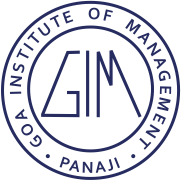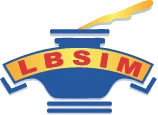Impeachment is a formal process in which an official is accused of unlawful activity, the outcome of which, depending on the country, may include the removal of that official from office as well as other punishment.
Impeachment was first used in the British political system against Baron Latimer in the second half of the 14th century. Following the British example, the constitutions of Virginia (1776) and Massachusetts (1780) and other states thereafter adopted the impeachment doctrine; however they restricted the punishment to removal of the official from office. In private organizations, a motion to impeach can be used to prefer charges.
The Indian Constitution has measures to ensure the independence of the judiciary from executive action. This helps judges to give judicial decisions in a free and fair manner without any inducements. But along with ensuring independence the Constitution also provides checks against misbehavior by judges. Under the constitution, judges, chief justices of the Supreme Court and high courts can only be removed after being charged with "proven misconduct and incapacity" by the president of India after a long process. The process is laid down in the Judges (Inquiry) Act, 1968.
The only other person (other than 3 mentioned above) against whom impeachment can be done is the President of India which ironically has never happened. But, indeed there is a provision. The President of India can be removed from the office for violation of the constitution by impeachment. Such a motion of impeachment can be initiated by any House of Parliament In such a case one fourth of the members, of the house, intending to move such a motion have to serve a fourteen days notice in writing. After the completion of the stipulated period the motion is discussed and put to vote.
In case of impeachment of judges and chief justices of the Supreme Court and high courts, a motion has to be moved by either 100 Lok Sabha members of Parliament or 50 Rajya Sabha MPs. If the motion is admitted, the Speaker of Lok Sabha or Chairman of Rajya Sabha constitutes an inquiry committee.
The committee has three members: a Supreme Court judge, a High Court Chief Justice, and an eminent jurist. The Committee frames charges and asks the judge to give a written response. The judge also has the right to examine witnesses. After the inquiry, the committee determines whether the charges are valid or not. It then submits its report.
If the inquiry committee finds that the judge is not guilty, then there is no further action. If they find him guilty, then the House of Parliament which initiated the motion may consider continuing with the motion.
The motion is debated. The judge (or his representative) has the right to represent his case. After that, the motion is voted upon. If there is two-thirds support of those voting, and majority support of the total strength of the House, it is considered to have passed. The process is then repeated in the other House. After that, the Houses send an address to the President asking, the judge to be removed from office.
The first case of impeachment of a judge in India was of Justice V Ramaswami of the Supreme Court in May 1993. The inquiry committee found that the charges against him were valid. However the motion fell through in the Lok Sabha as the ruling Congress abstained from voting. Kapil Sibal, a senior Supreme Court advocate, and now a cabinet minister, defended Justice Ramaswami before the bar of the Lok Sabha.
Lastly Justice Soumitra Sen was facing impeachment but he resigned amidst impeachment. Justice Sen is accused of misappropriating around Rs24 lakh in the 1990s when he was a lawyer. He was appointed as Receiver in a case by an order of the Calcutta High Court on April 30, 1984. As a Receiver, Justice Sen had the power to collect outstanding debts and claims due in respect of certain goods. The Receiver is required to file and submit for passing, his half yearly accounts in the Office of the Registrar of the High Court. However, Justice Sen did not comply with this rule. As a Receiver, Justice Sen was required to open only one account and not move funds without prior permission. However, the Inquiry Committee found that two separate accounts were opened by Justice Soumitra Sen as Receiver, with ANZ Grindlays Bank and Allahabad Bank. A total sum of over Rs 33 lakh was transferred in these accounts from the sale of the goods which was unaccounted for.
Justice Sen claimed he could not account for this amount since it was invested in a company called Lynx India Ltd. to earn interest. The Inquiry Committee found this claim to be false as well.
The Inquiry Committee noted that Justice Sen's actions, since he was appointed as a High Court Judge were, "an attempt to cover up the large-scale defalcations of Receiver's funds". After he became a Judge he did not seek any permission from the Court for approval of the dealings, as required by the Court, nor did he account for the funds.
The Committee concluded that (a) there was a large-scale diversion of fund, and (b) such diversion was in violation of the orders of the High Court.
Justice Soumitra Sen upper house of parliament voted to impeach him over corruption charges but he sent his resignation papers to President Pratibha Patil four days before he was to appear before the lower house of parliament, which was also to vote on the impeachment.
Another such motion has been initiated against Chief Justice Dinakaran of Sikkim High Court. An Inquiry Committee is looking investigating the issue. However, Mr Dinakaran has reportedly sent his resignation to the President. If the resignation is accepted, then the motion to remove him will become ineffective.
The Judges must realize that they do have great powers in their hands but along with that they have greater responsibilities. The people of India rely on them and if they themselves indulge in misbehavior conduct then people are left with no hope of justice.
For such topics of Basic understanding on the subject matter which will motivate you to kick start preparation for CAT 2011 alongwith various other MBA entrance tests. This would also be useful for extempore speaking / Essay writing / GD & PI sessions, please keep on visiting www.mbarendezvous.com Portal with Management by objective approach.






